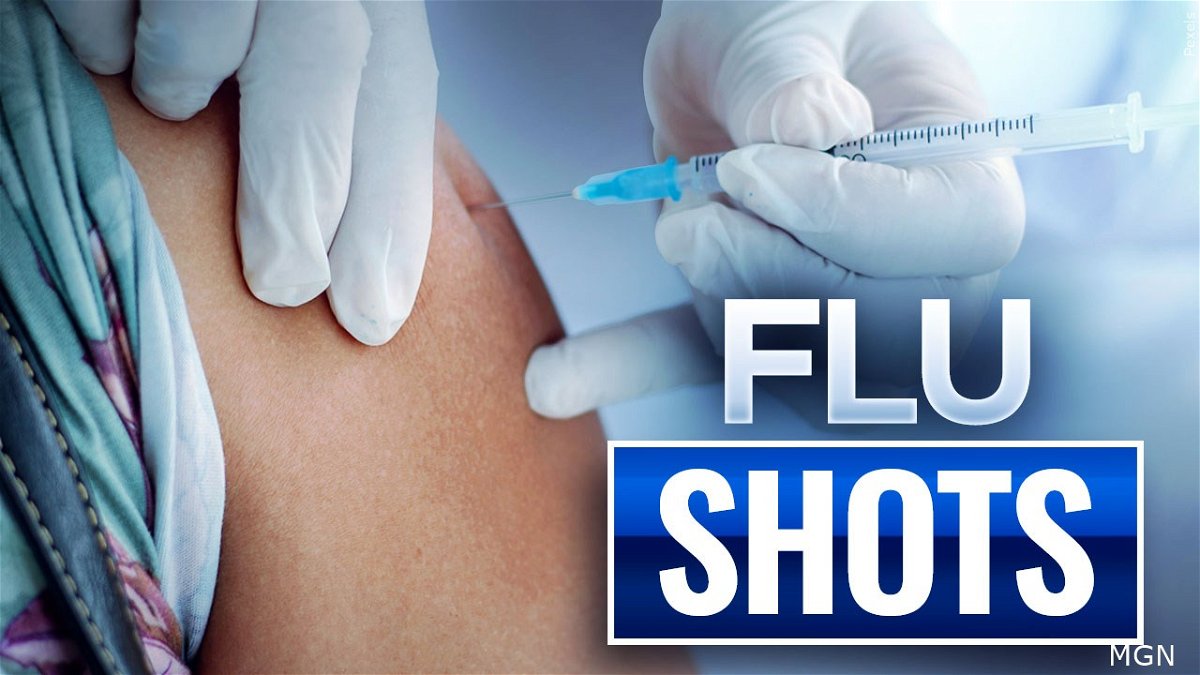Tis the season to get flu shots

JACKSON, Wyo. (KIFI) - While the two most recent flu seasons involved very low activity levels, a Wyoming Department of Health (WDH) official says this influenza season may be different and flu shots can help protect Wyoming residents from serious illness.
“We know flu shots are safe and continue to be the most important strategy for influenza protection,” said Dr. Alexia Harrist, state health officer and state epidemiologist with WDH. “Flu vaccines reduce illness, hospitalizations and deaths. We recommend flu shots for everyone six months of age and older.”
“Largely due to widespread personal precautions related to COVID-19, reported flu activity was unusually low over the past two flu seasons in Wyoming and across the country. There are indications that may not be the case again,” Harrist said. “Unfortunately, we may be back to normal with flu. We expect influenza will circulate in addition to COVID-19 and other respiratory viruses in the coming months,” Harrist said.
Influenza is a contagious respiratory illness. Symptoms, which come on suddenly, include fever, cough, sore throat, runny or stuffy nose, headache, extreme tiredness and muscle or body aches.
Although most healthy people recover from influenza, they still experience an unpleasant illness that can mean missing work, school or other activities. They may also pass along the virus to other people who may be at high risk for serious complications and illness.
Harrist said it is considered safe for people who are eligible for COVID-19 vaccines and booster doses to receive them as the same time they receive a flu shot.
“We recommend that people stay up to date on their COVID-19 vaccine protection,” Harrist said. “While we continue to move along past the earlier, emergency stages of the pandemic, COVID-19 remains a concern, especially for our residents who are more vulnerable to its effects.”
Currently, the Centers for Disease Control and Prevention recommends people ages 5 years and older receive one updated (bivalent) booster if it has been at least two months since their last COVID-19 vaccine dose. People who have gotten more than one original booster are recommended to get an updated (bivalent) booster. More information about COVID-19 vaccine recommendations can be found at: https://www.cdc.gov/coronavirus/2019-ncov/vaccines/stay-up-to-date.html.
Flu vaccines are especially important for those vulnerable populations such as young children; pregnant women; people with chronic health conditions such as asthma, diabetes, or heart and lung disease; and people 65 years and older. Healthcare workers and people who may live with, care for, or are in contact with high risk individuals or infants six months of age and under, should also get the flu vaccine.
Harrist explained that it takes about two weeks after receiving the vaccine for it to offer protection. “The best strategy is to get your flu shot before people around you are ill,” she said.
Influenza vaccines are available in many locations, including local public health nursing offices, workplaces, doctors’ offices, pharmacies and retail stores and are covered by most insurance plans. In addition, Wyoming’s public vaccine programs, which are available at participating providers, help protect some adults and children from vaccine-preventable diseases, such as influenza, at little to no cost for eligible patients. COVID-19 vaccine doses are available in many of the same locations and currently remain available at no cost.






